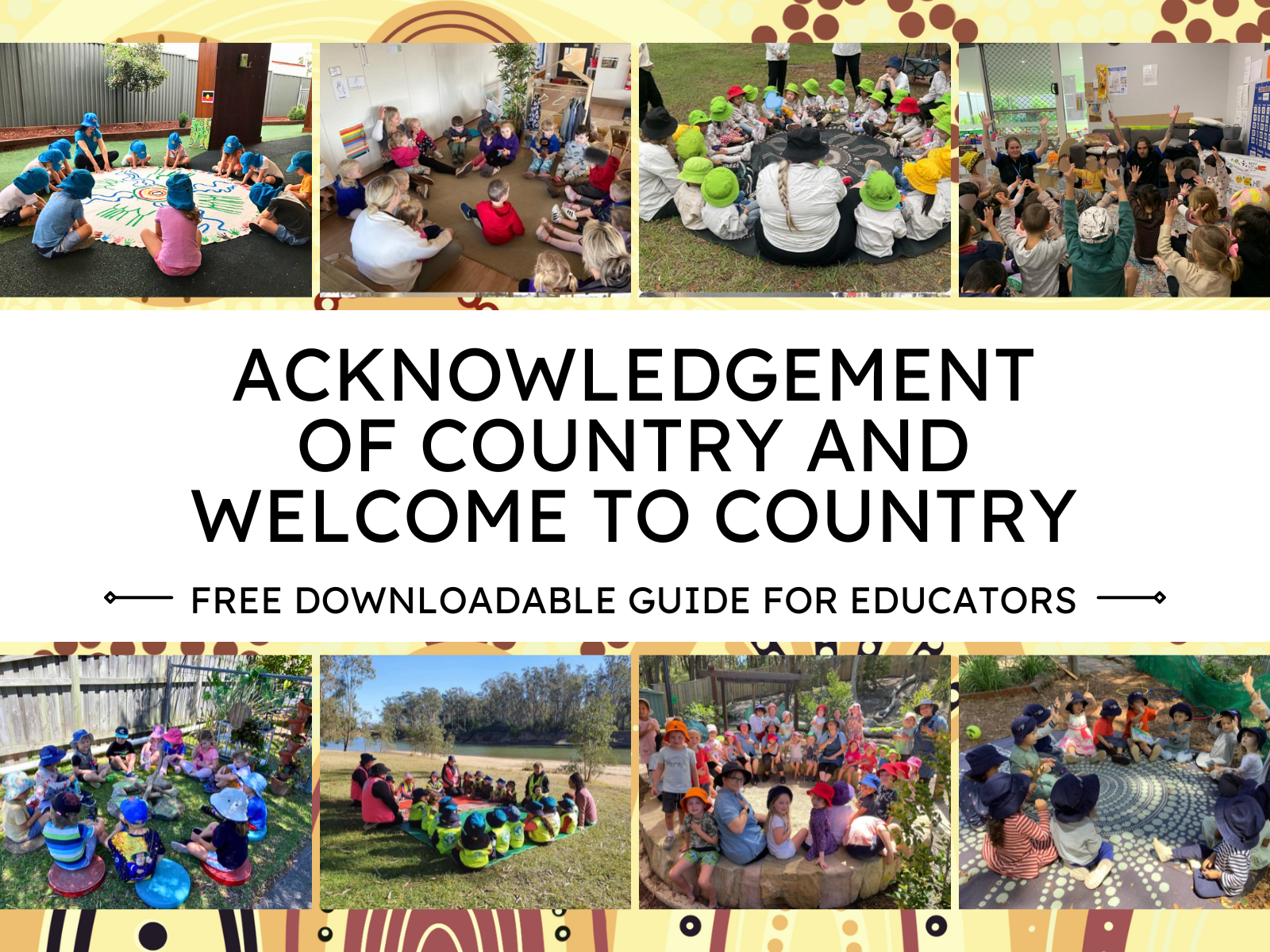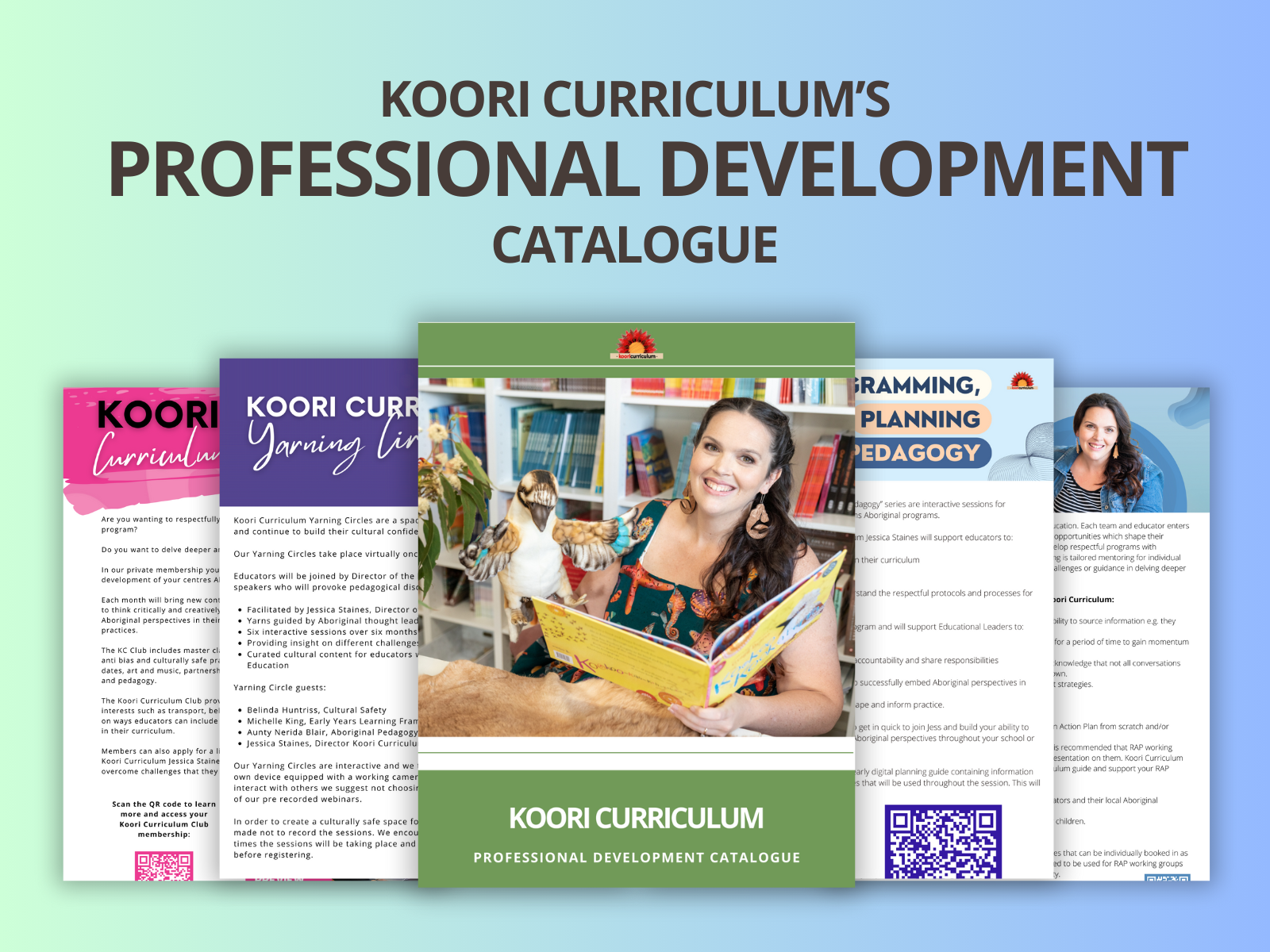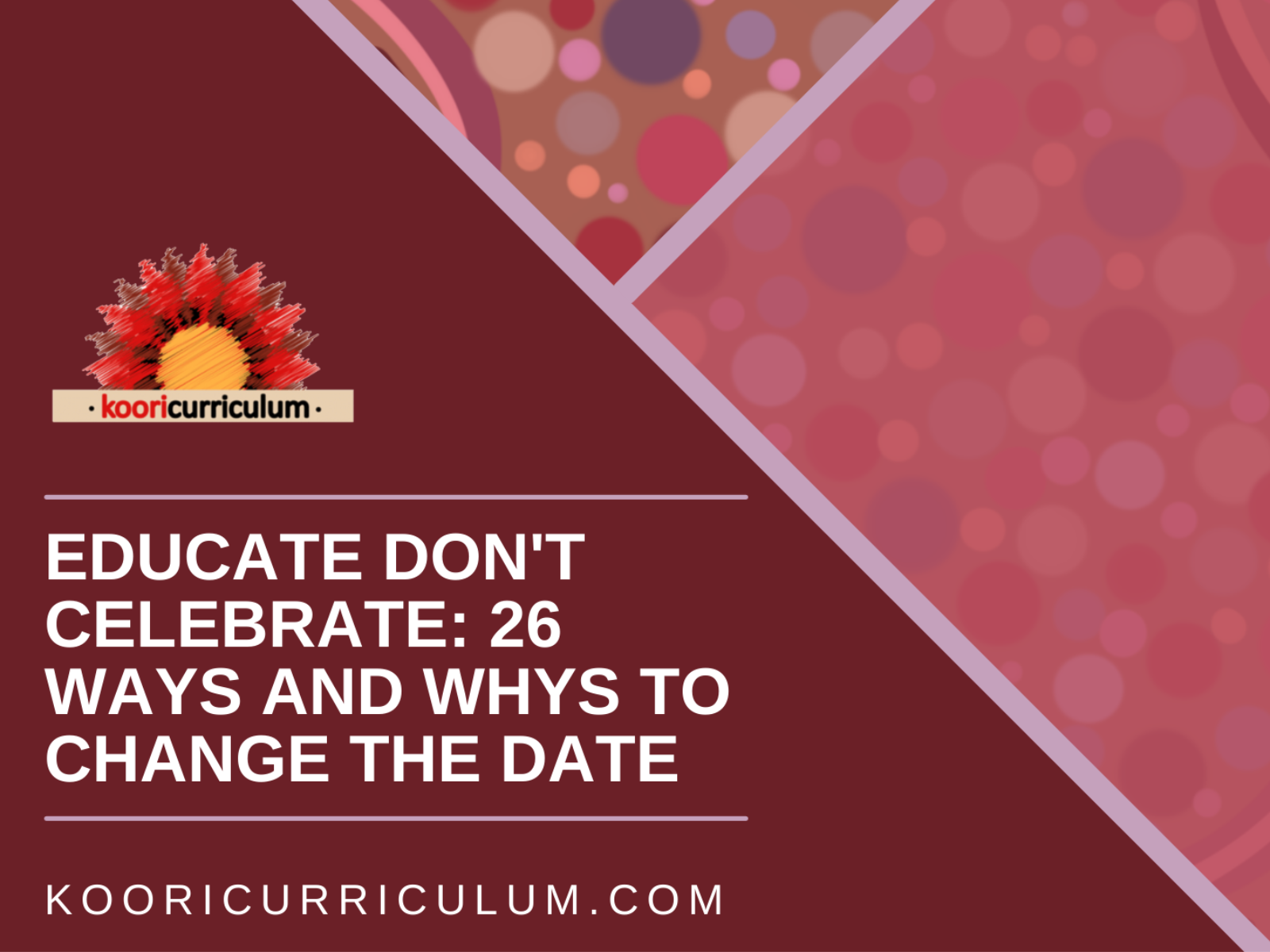
My reflection on Reconciliation Week 2022
As educators at Concord West Rhodes Preschool, we have been on a learning journey with Koori Curriculum since approximately 2016, re-learning truth, Indigenous perspectives and listening to Aboriginal and Torres Strait Islander voices who share their stories, experiences, and Culture.
Always, we look for ways to share and include what we learn and experience with our preschoolers, enriching our program and the hearts and minds of those in our community. Our goal- to value and grow pride and respect within our community for First Nations Peoples and the oldest, continuous living culture on earth, moving forward with.
Over this time with Koori Curriculum and many other Indigenous community relationships, we have noticed a growing influx of high quality children’s literature that addresses historical events that have had far reaching impacts and consequences on First Nations People, also sharing current issues. We purposely include these, both historical and contemporary information, stories and images with our preschoolers.
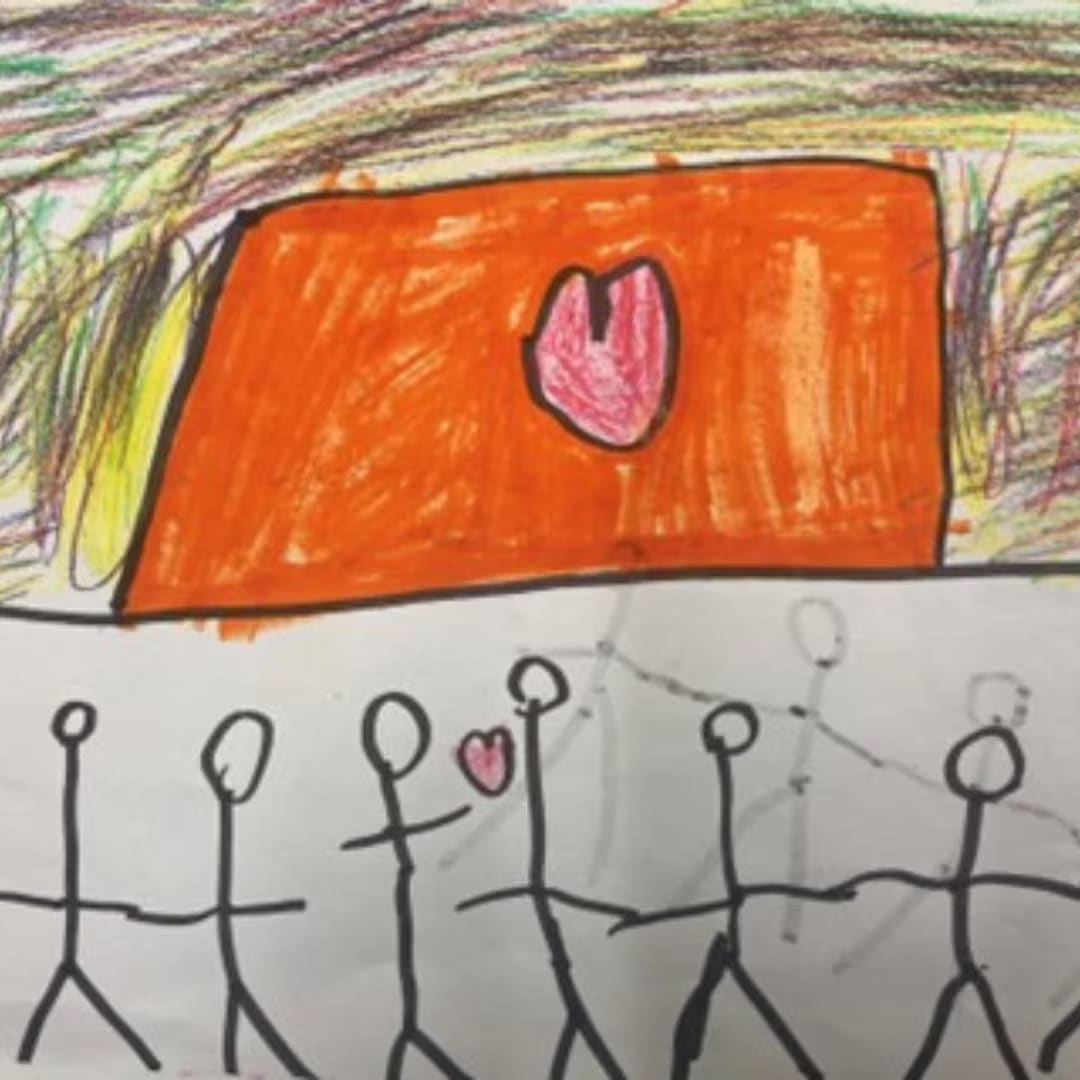
In 2021 I was lucky enough to have my ‘question’ selected by ABC’s Q&A and present it live.
Is Australia ready to hear its truth? Are we brave enough to learn the atrocities of our past AND our present? Deaths in custody, children being removed- it’s happening at a faster rate today. The gap is not closing. How will Australia find its heart?
My question was inspired by the responses by preschoolers towards Thomas Mayors’ book ‘Finding our Heart- A story about the Uluru statement for young Australians’, illustrated by Black Douglas. It never ceases to amaze me, the total ‘get it’ disposition that our preschoolers have when discussing social justice issues, fairness, inclusion, and Indigenous perspectives. For a group of people who are developing their cognitive/ processing abilities, abilities to express ideas, develop their own identity and regulate their feelings, they have a huge capacity to just connect with the issue/ topic.
Some adults may think that they do it ‘simplistically’. However, the more I reflect on their ideas and expressions the more I find that this way is often mind-blowingly obvious. As an adult listening to these connection points, I marvel at their innate knowings.
Where does this come from? Has the bias not formed yet? Are they connecting to heart?
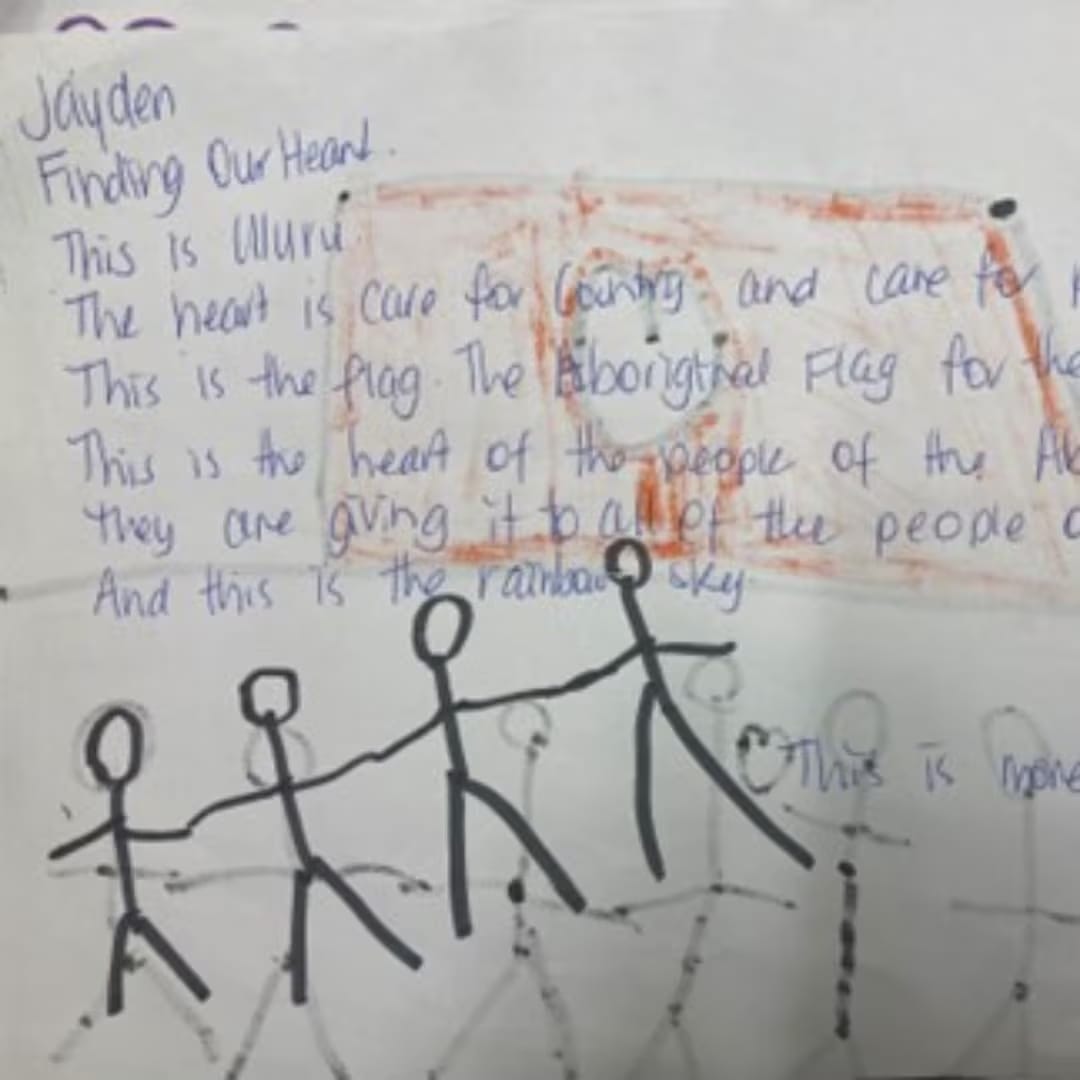
Some theories and research talk of the heart brain. There is idea of us having 3 brains, the thinking brain, the gut brain (instincts) and the heart brain (connection). So, this is where we like to begin. It is where we start the conversation, wonderings and noticing- heart connections- relationships.
So how does Australia find its heart? Mitch Tambo’s response was one of the most powerful, heartfelt, vulnerable monologues I’ve heard. He spoke of hurts, lies, statistics, truths, and hopes wrapping it within a big warm blanket of much needed truthful education and including our young learners. Radical right? Or should this be the norm?
The word Reconciliation has been around for a while now. Actions are tossed around like sand on a shoreline, moving forward, pulling back, but kind of just lingering there in the mix. Yet, despite this perceived ebb and flow, we seem in a space of being stuck.
In my circles at least, there is this emerging want for change, for learning about Indigenous culture and to look to voices and knowings from more than 60,000 years of resilience and survival in a time where our world is in so much crisis. Yet, the systems and powers that we live and work within, seem resistant to this.
I’m wondering, should we be considering [re]Conciliation instead. Conciliation is a process in which the parties to a dispute, come together to identify the issues, think of some options and alternatives, and reach an agreement to give some a go. Reconciliation is more aligned to repairing tel action ships. But was there one in the first place? As one community member has shared with me, maybe this is the heart of the problem!
Each and every time though, that I read stories, or walk on Wangal Country with our preschoolers, I’m reminded of hope.
Their innocence and ability to just see.
Just be.
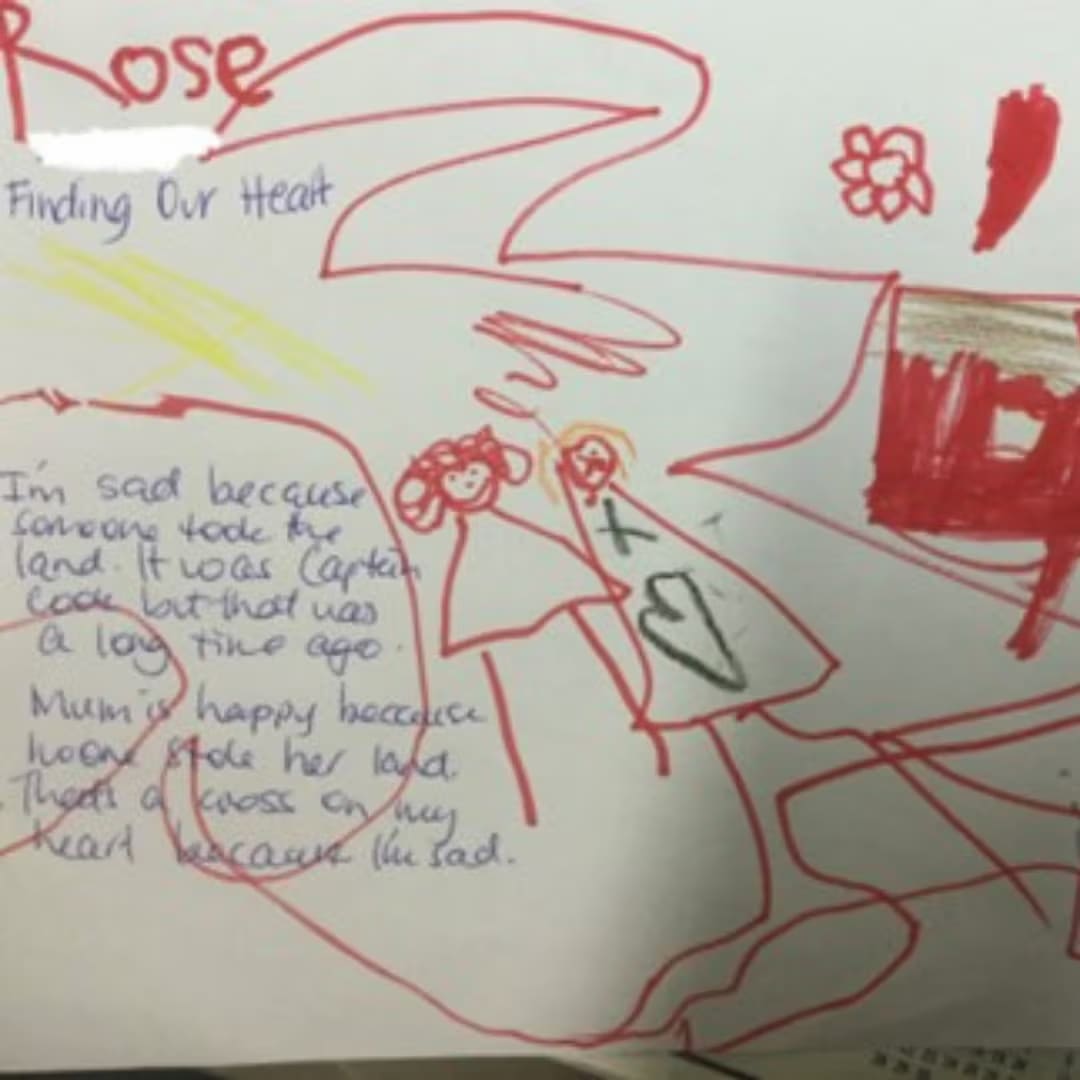
I wonder what the future will be, with these little people growing up learning about the true shared history of Indigenous and Colonial Australia, what was here before invasion and colonisation and what has become because of it.
I now know that my own education was very biased, having a very ‘white’ lensed version of truth, history and because of this, a very one-sided perspective. I felt cheated when I found out what I wasn’t told. What I didn’t know. My textbooks, the stories I had access to, were very different to what I am now learning.
I share this with no blame, but very much a heart that feels sad, a brain that is realigning information and a gut that has a deep knowing that something is not right.
Right now, in a world that is in climate crisis, I think custodianship is critical.
In a world of consumerism economy, I think sustainability extends beyond worm farms and compost bins. In a world with extreme social justice imbalances, I think caring for each other is foundational.
I’m filled with wondering- What might become possible, if our little people (because they are actually, people, with valid ideas, understandings, rights and hopes) are exposed to these knowledges, resources and afforded opportunities to discuss their own feelings, thoughts and ideas in relation to them? What might become possible if we all begin to listen more deeply to Indigenous stories, voices, learning from and with them. I’ve often shared that the connections and relationships I have made with community in the last few years have changed me both personally and professionally. Connecting to Place has shifted something within me. Is this me connecting to Country? Belonging? Is it Country connecting to me. Is it Mother Earth guiding us back?
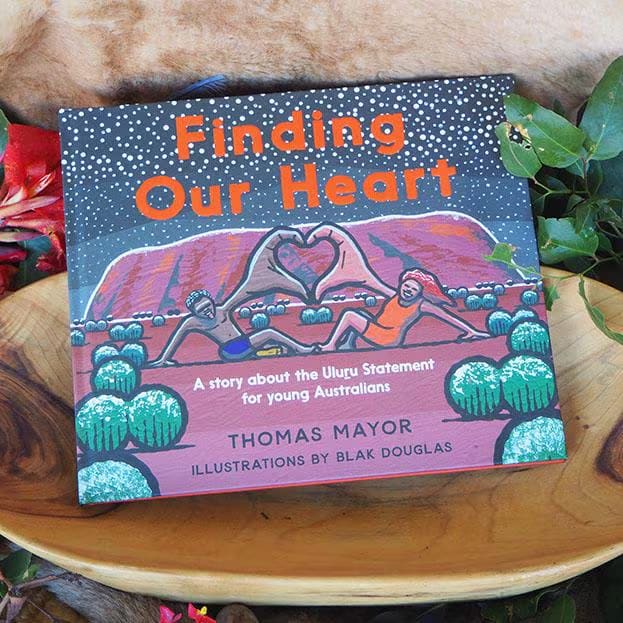
So back to the story book, ‘Finding our Heart’…
The word ‘Reconciliation’ was introduced to the preschoolers. They identified letters, calling out if their name included the letter. Discussions about lower case and upper-case letters emerged. ‘Reconciliation’ was identified as a “really long word”. Curiosity as to what it meant surfaced. No one really knew.
A smaller word was introduced- ‘sorry’.
This word was known. Ideas spilled out about what it is, why we say it, along with a multitude of hurts that may in fact, require this word being said.
The focus became hurts.
These were firmly concentrated on physical hurt.
After these ideas were exhausted it was then presented- what if the hurt wasn’t to your body but instead to your thoughts and feelings.
The mood shifted.
It was decided that this was harder to know. It was harder to see. It relied on the other person, or others, telling us. It required listening. Remembering experiences brought more clarity to this. A role play between teachers showed an example of how someone could be sorry because another person had big feelings.
A phrase was heard- ‘is there anything I can do to help?’
This became very meaningful to the Preschoolers. Suddenly a deeper understanding of sorry was emerging. Sorry can mean that we hear a person’s feelings, and we have empathy/ care about them and for them. We don’t need to have caused them hurt, or know how it feels to have that hurt, we are just connecting with them… is this the heart connection?
This was where the story book was shared.
There was the deepest of attentions from the group. Where some may lose focus, have the need to move around, look to friends, play with fidget toys and even leave the group for a period of time, I saw instead, complete engagement.
Where others feel the need to shout out their ideas, command their story connections and stand up to point out what they see, blocking others view, I saw that there was stillness.
Quiet
That space we find in play, where time stands still, and we are truly immersed…here it was in a shared group experience.
True connection.
For me, it resonated the importance of the messages that were being shared in Thomas Mayors’ voice and Black Douglas’ illustrations.
The Uluru statement from the heart was made 26th May 2017. That’s 5 years ago. It was an important opportunity for us as a Country and collective people to listen and act. Yet once again, it is a voice from Indigenous People that has stayed static from its point of creation. What will move this campaign to a space of action, by the systems that govern?
I will admit that I was heartened by the inclusion of the Uluru Statement of the heart in our 31st Prime Minsters election acceptance speech. Heartened to have an Acknowledgement of Country precede it. Heartened to see the image of the 3 flags of Australia positioned in federal parliament follow. Will these small but needed changes be the beginnings of the collective ‘thinking brains’connecting with ‘heart’ and ‘gut brains’, andsee actions of [re]conciliation truly begin to move forward and even reshape, change language, within and from our ‘systems’?
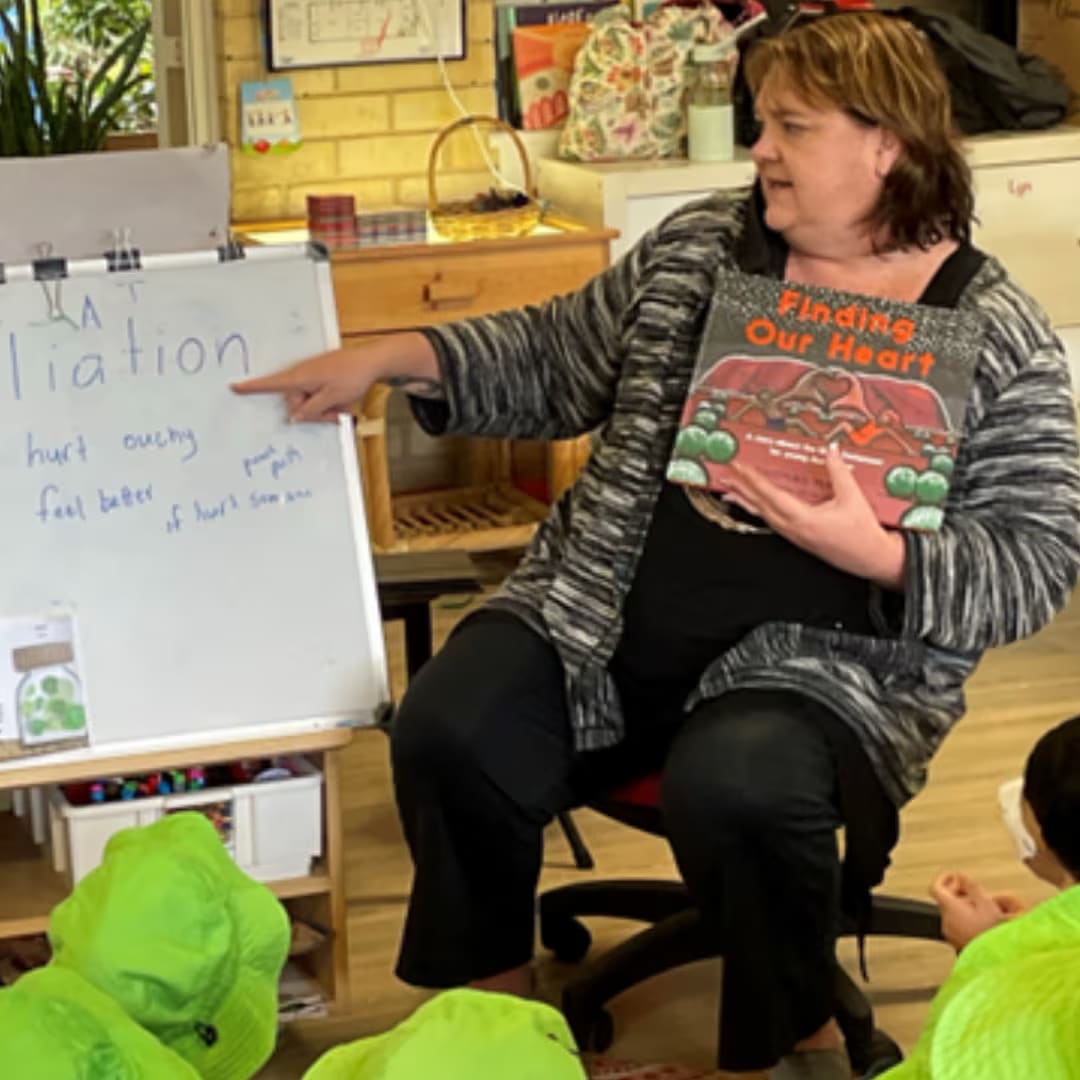
I wonder what the future will be, with these little people growing up learning about the true shared history of Indigenous and Colonial Australia, what was here before invasion and colonisation and what has become because of it.
I now know that my own education was very biased, having a very ‘white’ lensed version of truth, history and because of this, a very one-sided perspective. I felt cheated when I found out what I wasn’t told. What I didn’t know. My textbooks, the stories I had access to, were very different to what I am now learning.
I share this with no blame, but very much a heart that feels sad, a brain that is realigning information and a gut that has a deep knowing that something is not right.
Right now, in a world that is in climate crisis, I think custodianship is critical.
I often present myself with disclaimers.
I am the person who will cry- I express my emotions.
I can be naive. Or is it trusting? Believing in others.
I also am a ‘cup half full’ person. I cling tightly to hope and advocate for actions of hope.
So sharing this book with our Preschoolers, I believe and trust in them as the force that will bring positive change towards acts of [re]conciliation or change in general. I have hope that affording them the opportunities to ponder on these social justice issues and to form their own thoughts and feelings around them will bring greater inclusion. By growing and strengthening their 3 brains- mind, gut and heart, in their foundational developmental years, that Australia truly will begin to find its heart.
We will begin to listen.
To care.
To create helpful change.
That Country, Mother Earth, will reconnect us.
The message this year for Reconciliation is BE BRAVE. MAKE CHANGE. In sharing my ‘brains dump’ with you, the reader, I share my thoughts, deep knowings and feelings around this time of year- [Re]conciliation. But also, every day. I truly believe and hope that our littlest people will be the force that creates positive change. I hope that educators and adults in their world can be brave and afford them the right and opportunity to engage in these spaces, and with these amazing resources that provide developmentally appropriate access to information, history and hopes. I will continue to do so. What will be different though, is that I’ll share it beyond my in the hope that it begins to ripple within the wider community.
I often share how the Preschoolers take this knowledge home then on to schools. That adults are often more open and receptive to a child’s views and expressions as they seem ‘simple’ and less threatening’. This provides access to others- it teaches others. It can create change. Theirs is not a question of being brave. I believe it’s just a deep knowing. And in their ‘child’ empowered way they create change within the adults’ hearts. For them, it ‘just is’. So I am learning from my greatest teachers, the children. I too will share. I believe that they will help us Find the Heart of Australia. Connecting our hearts.
Marnie Omeragic 03.06.2022
"Finding Our Heart" By Thomas Mayor
’When we all came together at Uluru, we invited all Australian people to accept our voice and culture as a gift.’
Can you help us find the heart of the nation?
A book about understanding Australia’s past, so we can have a shared future.


